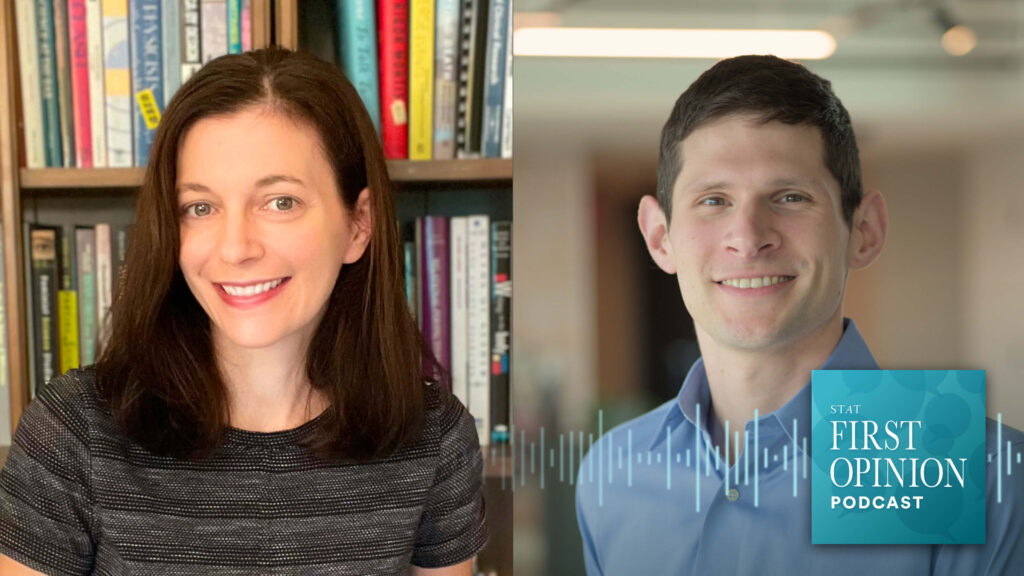Health
Volunteer Faces Dysentery in Vaccine Study for $7,300 Reward

A recent decision by a volunteer to participate in a vaccine study has sparked a conversation about the ethics of compensating individuals for potential health risks. Jake Eberts, motivated by a combination of financial reward and altruism, agreed to be exposed to the bacteria causing shigellosis in exchange for $7,300. During the study, Eberts developed dysentery, describing his experience as “pretty aggressive” and humorously noting that he was among the “overachievers” in his cohort.
Eberts’ story, shared on the “First Opinion Podcast,” highlights the complex dynamics surrounding participation in clinical trials. This particular study aimed to assess the efficacy of a new vaccine for shigellosis, a disease that can lead to severe gastrointestinal distress. Eberts, now a board member of the nonprofit organization 1Day Sooner, advocates for fair compensation for healthy volunteers who engage in medical research.
Ethical Considerations in Clinical Trials
During the podcast, Eberts and his guest, Jill Fisher, a professor of social medicine at the University of North Carolina, discussed the financial incentives offered to participants in medical trials. Fisher emphasized that many studies impose significant demands on participants, suggesting that expecting individuals to volunteer without compensation undermines the integrity of the research system. She stated, “A lot of these studies are really asking a lot of participants. And to think that everybody could just do it for free really affects the diversity of clinical trial participants.”
The conversation was inspired by the pair’s recent opinion piece, titled “Medical research participants deserve to be paid well,” which critiques current compensation structures in clinical research. Fisher and Eberts argue that fair pay is crucial not only for ethical considerations but also for ensuring a wide range of participants in studies, which can lead to more robust and applicable research outcomes.
Eberts’ personal experience with dysentery as a result of the study has cemented his commitment to advocating for the rights of medical research participants. He believes that sharing his story can help raise awareness about the challenges faced by volunteers in clinical trials.
Broader Implications for Medical Research
The discussions surrounding compensation for clinical trial participants have gained traction as more individuals like Eberts step forward to share their experiences. As the medical field continues to evolve, the question of how to ethically compensate volunteers remains pertinent. Balancing the need for diverse participation in research with adequate compensation could influence future studies and their outcomes.
Listeners can explore this important dialogue further by subscribing to the “First Opinion Podcast” on platforms such as Apple Podcasts and Spotify. Additionally, the First Opinion newsletter, delivered weekly, provides insights into ongoing discussions in the realm of medical research and ethics.
As the landscape of clinical trials continues to change, Eberts’ story serves as a reminder of the human element at the heart of medical research and the necessity of addressing the ethical implications of volunteer compensation.
-

 Technology5 months ago
Technology5 months agoDiscover the Top 10 Calorie Counting Apps of 2025
-

 Health2 months ago
Health2 months agoBella Hadid Shares Health Update After Treatment for Lyme Disease
-

 Health3 months ago
Health3 months agoErin Bates Shares Recovery Update Following Sepsis Complications
-

 Technology4 months ago
Technology4 months agoDiscover How to Reverse Image Search Using ChatGPT Effortlessly
-

 Technology1 month ago
Technology1 month agoDiscover 2025’s Top GPUs for Exceptional 4K Gaming Performance
-

 Technology2 months ago
Technology2 months agoElectric Moto Influencer Surronster Arrested in Tijuana
-

 Technology5 months ago
Technology5 months agoMeta Initiates $60B AI Data Center Expansion, Starting in Ohio
-

 Technology5 months ago
Technology5 months agoRecovering a Suspended TikTok Account: A Step-by-Step Guide
-

 Health4 months ago
Health4 months agoTested: Rab Firewall Mountain Jacket Survives Harsh Conditions
-

 Lifestyle5 months ago
Lifestyle5 months agoBelton Family Reunites After Daughter Survives Hill Country Floods
-

 Technology4 months ago
Technology4 months agoHarmonic Launches AI Chatbot App to Transform Mathematical Reasoning
-

 Technology3 months ago
Technology3 months agoUncovering the Top Five Most Challenging Motorcycles to Ride









